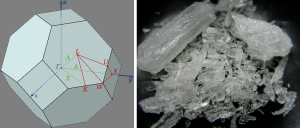
As college students, education is something one would think we all understand by now (especially if you’re an upperclassman). You take some classes you like, some you don’t; you take tests and write papers. You might even learn some things along the way. Hopefully you’ll connect with some professors well enough to get their support as you job-hunt.
But what do you do with those classes you don’t like? Even at a liberal arts college like Gustavus, it’s bound to happen. The professor drones or gives you unconstructive criticism, or the subject is simply not that interesting. Just because you graduate with a major that gives you some sort of specialization, doesn’t mean you’re passionate about every aspect of it (but if you are, good for you). Even the non-major classes you take might not stir up any excitement or inspiration for you.
Take Curriculum II (C2), for example. For those of you who don’t know, C2 (now called Three Crowns Curriculum, which is obviously SO much clearer than Curriculum II) has its own senior seminar, much like that of many other majors such as English, Political Science, and History.
There’s a new theme for the class every year, and a fairly major project that involves research, writing, and reflection, like a thesis. As a double major in the Humanities who has to write both of her thesis papers in her final semester, I know it’s a bit ridiculous to be taking this C2 seminar at the same time.
I frequently ask myself what the heck I was thinking. I’ve taken all my GenEds, and frankly, the community aspect of the program has served its purpose. What you didn’t know though, is that all of our readings for class have been written by chemists and mathematicians—about symmetry in math and chemistry. Now you probably think I’m crazy. Maybe I am, sitting in a circle with ten or so other people for four hours a week to talk about things that don’t make a whole lot of sense to us. In fact, they kind of piss us off.
So why do I stay? Why do we all stay in a class where we have to read wave functions, talk about Fourier transforms, and try to make diffraction patterns relevant to our lives? Because every once in a while, we find a little nugget of wisdom or insight to value in the midst of all that jargon-y gobbledy-gook.
Don’t believe me? Good. That’s a symptom of critical thinking. Maybe I’m preaching to the choir here, or maybe I sound like the voice of one calling in the wilderness, but the fact of the matter is, as much as I complain about reading math and chemistry (versus doing it), it’s actually sometimes, dare I say, stimulating. So when I see some of my classmates not even trying to get something out of the homework, I stop and think, aren’t we here to become educated people? Don’t we want to know how to find the silver linings, now and later in life?
I think the farther we get down the path of specialization, the easier it is to forget that there are other disciplines in which you still have an interest, and to which you can contribute. Near the end of our college careers, it’s understandable to just focus on finishing, on producing something with everything (or mostly everything) you’ve learned.
I think it’s important to keep trying new things and not recoil from ideas that really grate on you. Find time to relax, but don’t get caught being lazy in checking out life’s questions when you have the resources in front of you. Sometimes there won’t be anything close to solid answers, but chances are, you will find something. If you’re anything like me, that might mean differentiating between the terms “identical” and “indistinguishable” in molecular transformations by relating it to a student studying abroad: that person may look the same, but you can bet that inside, they are not.
Maybe that sounds laughably abstract to you, maybe not, but hopefully you get the point: draw conclusions, reach for answers, and don’t shy away from challenges. It makes life more fulfilling than you might think.